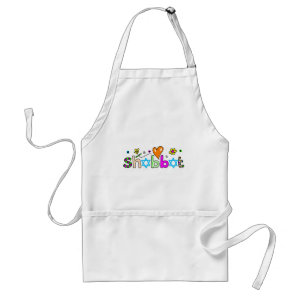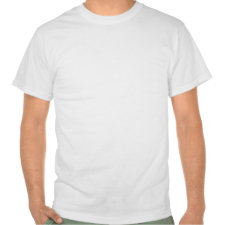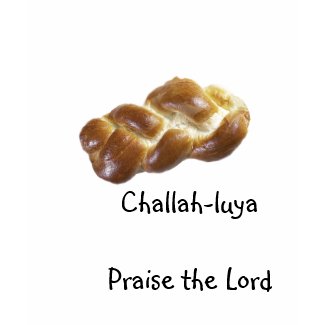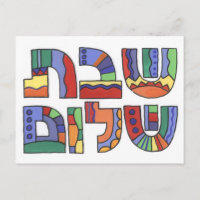One of the best things about Friday night for many Jews is the opportunity to revel in the delicious aroma and scrumptious sweet taste of the freshly baked special Jewish bread, challah, to mark the beginning of the traditional Friday night meal, and the start of the Sabbath. Some don their Sabbath aprons and make it themselves whilst others start their Friday mornings bright and early with a visit to the bakery. Either way, what does challah mean and why do Jews eat it on Friday nights?
What does Challah mean?
The word challah is thought to have several possible origins:
1.) Challah comes from “Chalal”
Challah may come from the root word chalal or chalool, which means hollow, or space. I have been unable to find out exactly why it would be called “hollow”. But I have a few speculations:
- I would surmise this might be because the bread is light and airy, and not dense like some other breads.
- It may also be because you bake this bread until it sounds hollow when it is tapped. This sound is the mark that the challah is ready. The tapping process has been retained through time and is found in most recipes for challah.
- A third possible reason I would deduce is that the term comes from the Biblical commandement of “hafrashat challah”, which involves burning a bit of this bread when it is baked, to commemorate the destruction of the Temple. Burning this little piece into nothingness, into space, into chalal, may be linked to the bread being linked to the word chalal. For the past two millennia the word challah referred only to this little piece of bread which was burned, and only much later did the loaves that weren’t burned take on the name “challah” amongst Ashkenazi Jews.
(Fun fact for Hebrew speakers: The root chalal, hollow is also linked to the modern Hebrew words for flute, chalil, and the word for window, chalon.)
2.) Challah comes from “Gal”
Some suggest the word challah is related to the Hebrew root “gal” which is linked to word “round” (“galgal” means wheel and “ma’agal” means circle in Hebrew). Why would this bread be called round? It may be due to its rounded arching overall shape, like a mound of sand (in Hebrew a “gal chol”) which would have a hard outer crust and a soft inner core. It may also be because challah loaves were perhaps round more often in the past, even if they aren’t round except on special occasions today.
3.) Challah comes from “Hala”
Others suggest that the word for challah may be derived from the amalgamation of two words:
Hilu or hala, the Arabic root for “sweet”, since the bread is unusually sweet. (From the root hala we get the word “halva”, the sweet dessert).
Hala may be joined to the Akadian word ellu meaning “pure”.
So “sweet and pure” would be Halellu… hallah.. Maybe.
Why do Jews eat Challah?
The challah bread is a symbol of the Manna that God made fall from the heavens to feed the Israelites when they were in the desert for 40 years after their Exodus from Egypt. This is also why on Friday night two loaves are traditionally eaten, alluding to the fact that on Friday God gave a double portion of Manna to enable the Sabbath to be a day of rest for him in the Manna-production department!
It is Challah that is eaten rather than normal bread because Challah is both sweeter and richer, being made with egg as well as wheat. A sweeter, tastier “rich man’s food” is a more fitting a symbol of the Manna which God provided.
Its sweet and rich taste also serves to help bring sweet richness to the experiences in the Sabbath ahead.
Braided Challah: Why is Challah braided?
The braiding of the challah may symbolize several possible things:
- A symbol of the intertwining of the holy days with the secular days of the week, as Friday passes into the Sabbath.
- A symbol of the connectedness the Sabbath brings, with its purpose of allowing time for family, friends and relationship strengthening. Like the segments of the braid coming together, Shabbat brings unity.
- Each braid on the challah is made from three chunks of dough, and some suggest that these three braids symbolize three things:
1. The commandment to remember the Shabbath (“Z’chor”)
2. The commandment to observe and guard the Shabbath (“Sh’mor”)
3. The fact that God gave these two commandments simultaneously as one unit as the fourth commandment out of the ten commandments (“b’dibbur echad”).
Others suggest the three braids represent three different things:
1. Creation of man and the world
2. Freedom of man during the Exodus from Egypt
3. The ideal world to come with its universal peace in the Messianic Age or Kingdom or God.
Why is the challah covered with a cloth?
As explained above, the challah is symbolic of the Manna that fell from heaven during the Israelites’ time in the desert. When that Manna fell, it was encased between layers of dew which kept it fresh. The covering that is placed over the challah is symbolic of this covering of the Manna.
There is also a slightly complex alternate explanation which is: We cover the bread so that this wheat-product, where wheat is one of Israel’s praised seven foods that take priorities over all other foods, won’t be “shamed” by the fact that it is not eaten before the wine is blessed and consumed, in spite of bread technically having “priority”.
Others say that the challah is covered for a much simpler purpose: Simply to let its unveiling mark the beginning of the Friday night meal.
Why is the bread torn rather than cut?
Very observant Jews tear the challah rather than cut it.
Some say this is because the avoidance of using a knife is symbolic of the Biblical story of Abraham who in the end did not sacrifice his son Isaac with a knife when tested by God.
Others say that the bread is torn because using a knife would signify violence, whereas the Shabbath is all about peace.
Related Products








Cheers to your website, continue the fantastic work and don’t stop
This info on challah is really useful for me. I’m glad I read your article. I wanna remark on some general things, The site style is great, the article is really excellent : D. Good job, cheers
This is an amazingly awesome web site.
Really cool piece of information here about challah, thanks!
Love the site!
I just couldnt leave your word wide web page without saying that I really loved the great quality information you offer for a visitor, I will likely be again sometimes to check up on new stuff you write.
Found this on Bing and I’m glad I did. Interesting article.
Im so glad that the interent has info like this just available at your fingertips!
I do not even know how I ended up here, but I thought this post was good. I don’t know who you are but definitely you are going to a famous blogger if you are not already Cheers!
Cheers!
Great blog post. I searched for info on the sweet Jewish bread and learned a lot more about it! Thanks!
I’m new to your blog and i really appreciate the nice posts and great layout.
Thanks for the great post on your blog, it really gives me an insight on this topic.
excellent put up, very informative. . You must continue your writing. I am confident, you’ve a huge readers’ base already!
I really liked the article, and the very cool blog
amazing..! this is just wot i needed for my homework for school..Thanks sooooo much..!!!